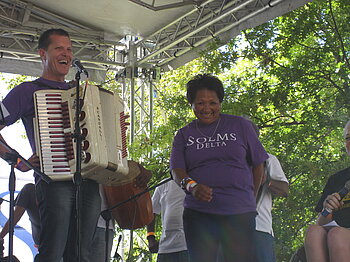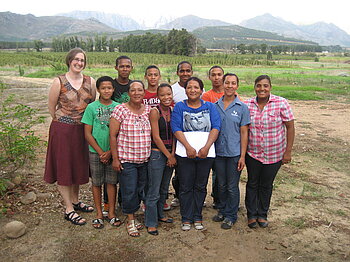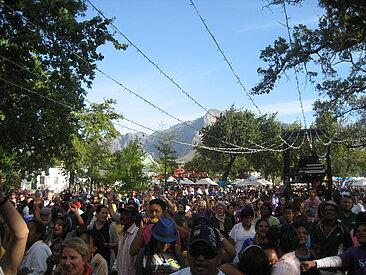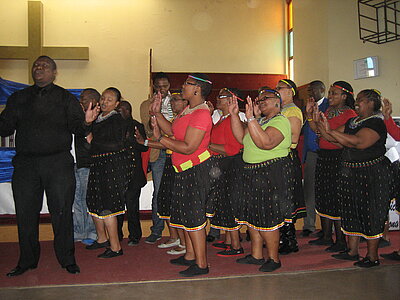Narratives of Musical Creativity in Post-Apartheid Cape Town
Adriaan Brand, musical director of Music van de Caab, traditional music ensembles of farmworkers and their families
"We had a secret family life. People falling in love across what was then a tangible colour line in terms of the law and needing to hide their love. Abortions, pain, trauma, bitterness, forgiveness, love.... But in the music and dancing there was no boundary. I grew up playing with uncles and aunties, white and coloured. Whenever we perform to an ethnically mixed audience of South Africans, even though the music is Afrikaans, the beat is pan-South African and the harmony is indigenous, open and transcendent. That’s where we can experience a oneness that is real, as a nation, in our music, because we have internalized that so deeply. It’s part of our soul. A black gospel choir sings and I burst into tears and sing with them. It's a healing of the wounds created by that axe of segregation."
Kyle Shepherd, jazz composer and pianist
“I just started composing and I wasn’t thinking that I’m composing in a style. It was natural and personal, influenced by the music from Cape Town, the klopse and Malay choirs, African traditional music... From my generation we don’t really think about white, black, and coloured musicians. We’re all making music together. We’re trying to create this transformation within ourselves and that’s difficult because of our socio-political climate. As a modern contemporary musician, we have all these things that we listen to. It’s not only jazz or classical music or traditional music, it’s also contemporary music. You assimilate all these things. When I’m composing I don’t really think, it just starts coming out. To call it jazz would also be limiting. For me it’s just a personal music.”
Philisa Sibeko, Soprano, Cape Town OperaPhilisa Sibeko, Soprano, Cape Town Opera
"Talking about creativity, we all have God. God instills within us some tunes and songs that you wake up with. At home with family I start singing and add my cousin to harmonize with me, it builds up, it’s an improvisation. At work with my colleagues we take opera choruses and change them into traditional songs when we’re having fun. My fellow choristers make up our own harmony parts, we can change the rhythm. If the song is based on female voices you can add male voices, then they will come up with other harmonies and rhythms and it becomes different. You can take a solo aria and make it into a chorus. We also take whatever instrumental music we love and one can sing their own line just using the instrument line and it becomes a vocalized thing. We do that a lot if we’re just having fun."
Kontakt & Links

Ethnomusicologist Prof. Juniper Hill conducted in-depth interviews with over 100 musicians in three countries as a part of a cross-cultural study of factors that enable or inhibit creativity in music. The research project was funded by the European Research Council and the results are available in the book Becoming Creative: Insights from Musicians in a Diverse World (Oxford University Press, 2018). This poster contains excerpts from interviews conducted with musicians in Cape Town, South Africa.







